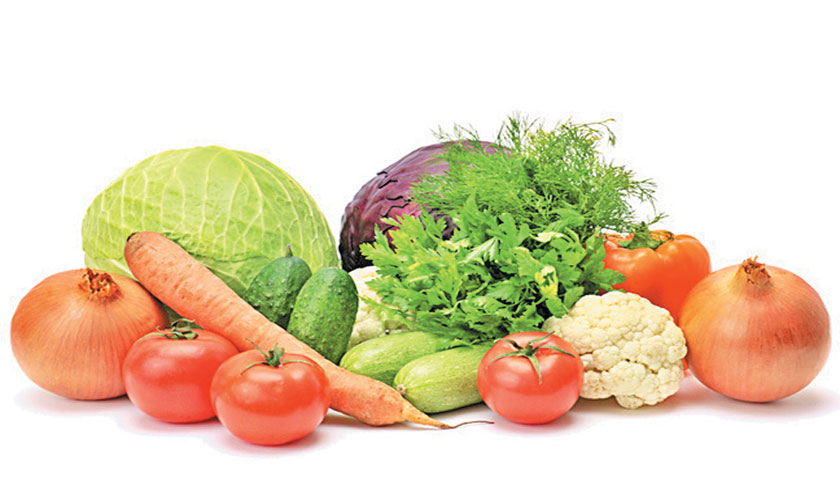Are you thinking of losing weight? It’s time to switch from a high-protein diet to a healthy- veggie diet. You! takes a look...
Meatless meals
Are you thinking of losing weight? It’s time to switch from a high-protein diet to a healthy- veggie diet. You! takes a look...
We’ve all heard the promises: 10 or more pounds of weight loss in just a week or two, simply by going on the latest and greatest diet. But healthy weight loss doesn’t come via a miracle diet, it comes with healthy eating, regular exercise and making small lifestyle changes that can be adopted for long term, health experts said.

The word diet comes from old French diete and Medieval Latin dieta meaning ‘a daily food allowance’. The Latin word diaeta and Greek word diaita mean ‘a way of life, a regimen’. A diet can be described as a set course of eating and drinking in which the kind and amount of food one should eat is planned out in order to achieve weight loss or follow a certain lifestyle.
There are literally hundreds of thousands of diets. Usually when one starts dieting, one thinks of popular high protein diets including Atkins Diet; South Beach Diet; The Weight Watchers Diet; The Abs Diet plan; The Eco-Atkins Diet and The Zone Diet.
However, when you build your meals from a generous array of vegetables, fruits, whole grains, and beans - that is, healthy vegetarian choices - weight loss is remarkably easy. You don’t have to go cold turkey. Instead, try easing into meatless meals. Consider going meatless one day a week. If you don’t like the idea of a whole day without meat, start with a couple of meatless dinners each week. Plan meals that feature entrees you like that are typically meatless, such as lasagne, soup or pasta salad. Tons of celebs are doing it. From Miley Cyrus to Cory Booker, it’s easy to find a veggie idol for you. In a German study published in the Journal of General Internal Medicine, dieters who switched to vegetarian plans shed more pounds than those on a non-vegetarian regimen. Vegans fared even better. And the good news is that more and more chefs are putting vegetables centre-stage, so you’re no longer left with the one token vegetarian pasta entree when you go out to eat. So, let’s get started:
Benefits of vegetarian diet:
Top 5 weight loss vegetarian foods:
Dark green leafy vegetables: These are storehouse of vitamins, minerals, phyto-nutrients, and antioxidants, proteins and fibres. The dark green leafy vegetables like broccoli, spinach, parsley, kale etc. contain fewer calories and reduce the levels of fat in our body.
Nuts: These are also store house of fibre, proteins, vitamins, minerals. These also include fatty acids, but the essential healthy fats. Nuts like almonds, walnuts, peanuts, Sunflower not only keep our heart healthy and reduce cholesterol, but also strengthen bones and brain functioning. Nuts also contain rich amount of omega-3 fatty acids.
Soya products and beans: These contain ample quantity of protein and other nutrients and soluble fibres which help to process fats in our body. The soy products like soya beans, tofu, kidney beans, baked beans, chickpeas, lentils, black Beans etc. increase our metabolic rate, reduce our appetite and help in weight loss. Moreover, ‘beans are just as satisfying as beef’, says a study in the Journal of Food Science. According to that study when participants ate a bean-based dish, they were just as full a few hours later as others who ate meatloaf.
Cereals and grains: Include whole wheat bread, brown rice, oats and porridge in your veggie diet. These type of grains and cereals have ample nutritional values. They are a great source of iron and zinc and give energy to our body.
Fruits: Yes, of course we cannot ignore the fruits. They are any day the best part of any kind of diet. With fewer calories and enormous quantities of fibre, vitamins, minerals, antioxidants and other nutrients, fruits are great for a weight loss diet. For weight loss, always opt for fruits with rich water content like grape fruit, watermelon, orange, apple and papaya.